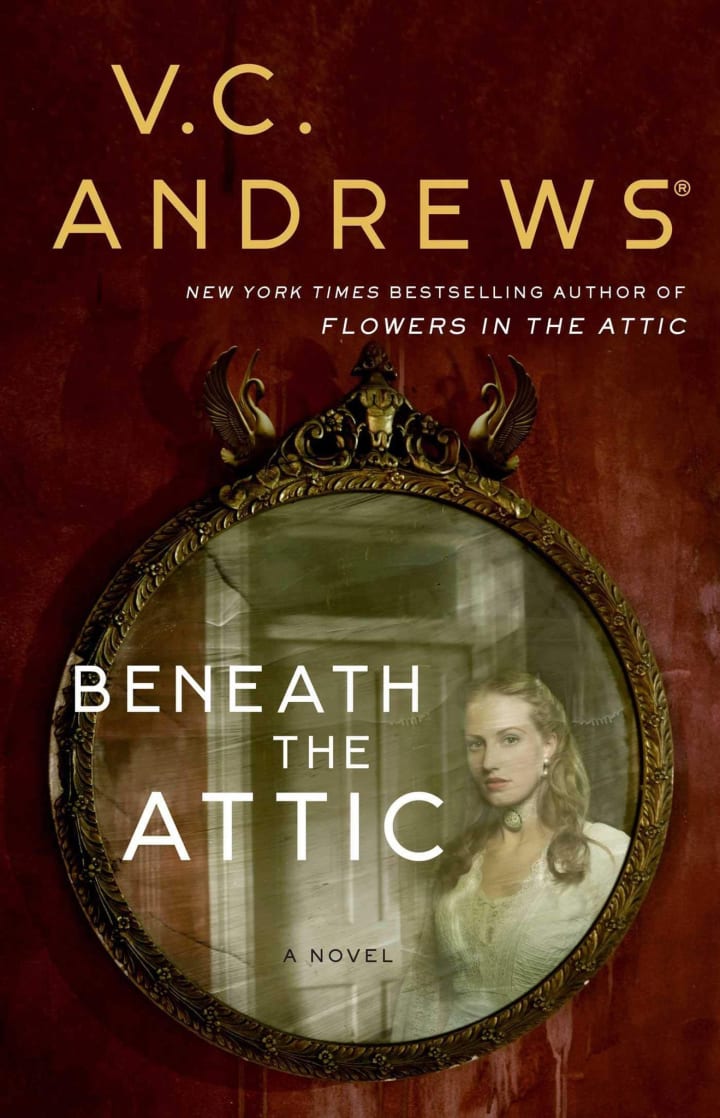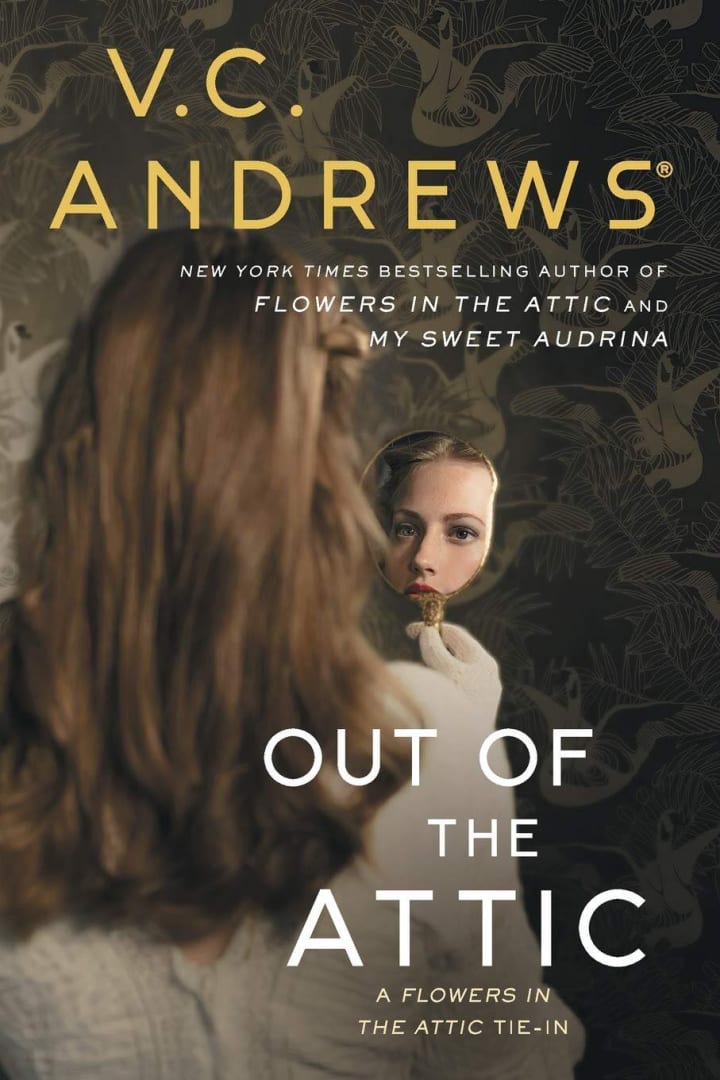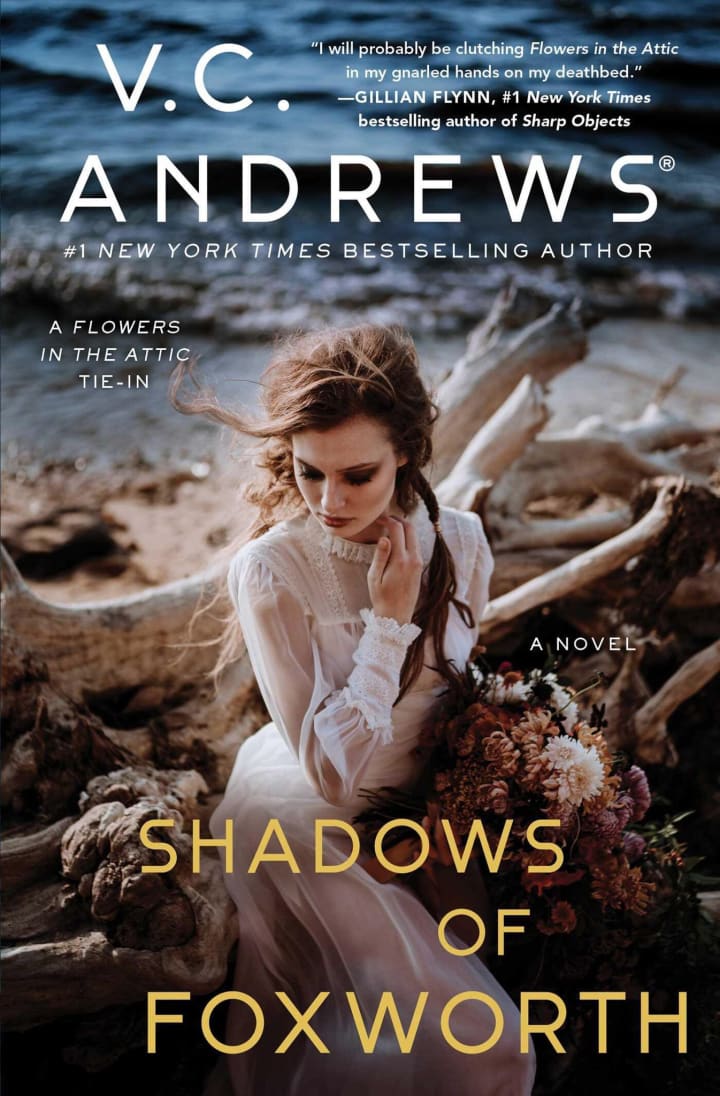
V.C. Andrews "Flowers in the Attic" series has captivated readers for the last four decades. Five books explored the twisted Dollanganger family - Andrew Neiderman became the ghost writer for V. C. Andrews following her death in 1986. As well as writing his own V.C. inspired family series, he has delved into the Flowers series with a prequel and sequel continuation. These reviews are purely based on my opinion and focus on the prequel series.
Beneath the Attic
The new ghostwritten prequel of the Dollanganger saga focuses on the mother of Malcolm Foxworth and the tragic backstory of the first Corrine.
However this book was missing something - the language and dialogue broke the consistency of 18th century Virginia and this stood out as I read further into this novel. Corrine was a character that was supposed to be written out of place and time, but her obnoxious, overtly sexual and naive persona made her difficult to sympathise or like. There were also slight inconsistencies from the original series. The relationship with Corrine and Garland previously written as a loving and compassionate relationship, now is a creepy and inappropriate relationship. Their relationship goes into abusive and non consensual territory, making their relationship much more problematic and yet, it didn’t delve into the psychological and emotional consequences of said abuse throughout most of the plot.
Towards the end, this book seemed to find a narrative flow. The seeds of the conflict started to be planted, but everything before that just felt like filler - even plot points that would’ve caused real conflicts weren’t delved into. Corrine and Garland’s relationship could’ve been interesting if it wasn’t portrayed as romantic through the protagonist’s perspective throughout most of the novel - if Corrine saw it for what it was, the complexity of this flawed engagement would be interesting. Only when Corrine was in Foxworth Hall did the story actually give the storyline that dark edge, but it was nearly the end when that finally happened.
As I listened to the audiobook, Dara Rosenberg gave a strong dramatic reading and really gave the story emotion and character.

Out of the Attic
The sequel to the prequel Dollanganger series focuses on the great-grandmother of the Flowers in the Attic saga with more of a Gothic edge. As I stated in my review of "Beneath the Attic", I felt like the hook of the story had only started to appear in the final chapters and "Out of the Attic" enhances that narrative flow.
This book definitely had a stronger plot and Corrine had a more distinctive character development that had more of an emotional impact. As a reader, this book introduced more of the claustrophobic tones of Foxworth - which made the story more engaging with its darker themes. I did have some issues with how little Malcom was portrayed, even as a child he had villainous attitudes and yet it was implied he worshipped his mother and adored her. Little moments like that was a bit disappointing, but Neiderman took time to explore why the protagonist lacked a maternal instinct or bond with her son.
The narrator for the audiobook also did a great job at performing the narration of this novel and she made it highly enjoyable.

Shadows of Foxworth
The third and final in this prequel trilogy comes to a dissatisfying conclusion. In terms of plot structure, the story itself was too slow for my liking. Very little happened that effected the storyline or made the protagonist active within the novel.
There were plot points that were hinted at or told through dialogue, which would’ve made the story itself more engaging if it had been written into the linear narrative. There was such wasted opportunity to explore this story.
Marlena was not as outrageous as young Corrine or frustrated as her mother in the second part, but her naivety was beyond irritating. She lacked any agency or purpose within the plot and her character had no plans, goals or dreams. After spending 300 pages with her, I thought she was written to be a very one-dimensional protagonist.
Aside from characters being related, this had very little to do with the V.C. Andrews legacy and her story of Flowers in the Attic. The foreshadowing of Foxworth had no payoff and was only addressed in the final chapters - with no consequences or repercussions. Ironically, the antagonistic aunt was my favourite character because she had layers and this book would’ve been better if it focused on her backstory.
The dynamics between Corrine’s children definitely didn’t need a whole novel dedicated to them, especially when it sadly lacked a substantial plot or engaging cast.

As you can see, I had very mixed feelings about this trilogy. Honestly, as I preferred Out of the Attic, I may have preferred this to be a standalone as it had the most consistent and complete narrative. Beneath lacked that emotional h00k where consequences seemed irrelevant and Shadows had no - well, plot. Other characters I was more emotionally invested in than the actual protagonist who did next to nothing to move the story along or really felt the gravity of what was happening.
I do enjoy Neiderman's original takes on V.C. with his own characters - which I may review soon, but aside from one out of three, I was unfortunately disappointed with this series.






Comments
There are no comments for this story
Be the first to respond and start the conversation.